This product is sold as an unpainted kit. This product can also be used for Russian forces in the Russo-Japanese War 1904-05.
Additional Images.
1. A British field gun battery deployed for action in the Sudan. By kind permission of Mr Anthony Vince.
2 and 3. Greg Potter has cleverly used the Field Gun (without seats) for a great looking 'old school' Spanish American War game.
BRITISH FIELD GUN
The Indian Mutiny was the last major conflict fought with
smoothbore weapons of the old type. The quest for increased range, and reduced
weight (and thus enhanced mobility) went through various stages (much
simplified here).
·
The Armstrong gun, ordered in January 1859, was first employed
in China in 1860. It was rifled breech loader (RBL). It fired shell which could
be fuzed to air burst as shrapnel, explode on impact, after penetrating a wall,
or shortly after leaving the muzzle, producing a case-shot effect. It was much
lighter, needing only a six rather than an eight-horse team.
·
From 1871 the 16- and 9pdr rifled muzzle-loader (MLR) became the
standard weapon for field and horse batteries (range 4,000 yards) on the
grounds of simplicity and cost. It was replaced by the 12pdr with a range of 4,800
yards. Wooden carriages were replaced by wrought iron and then steel.
·
Brass guns, which were lighter and easier to manufacture were withdrawn
from service in 1874.
·
From 1885 a 12pdr RBL was issued to both field and horse
batteries. A lighter version was later issued to horse batteries in 1892 and
the field batteries were converted to take a 15pdr shell. These remained the
standard field guns for the remainder of the century. The field gun fired
shrapnel (200 bullets), shell and case-shot (314 bullets). Maximum range was
6,000 yards, or 3,400 yards with time fuze (the lighter horse guns had a slightly
shorter range).
Jacklex Miniatures
Colonial Nineteenth Century 20mm metal wargame figures.


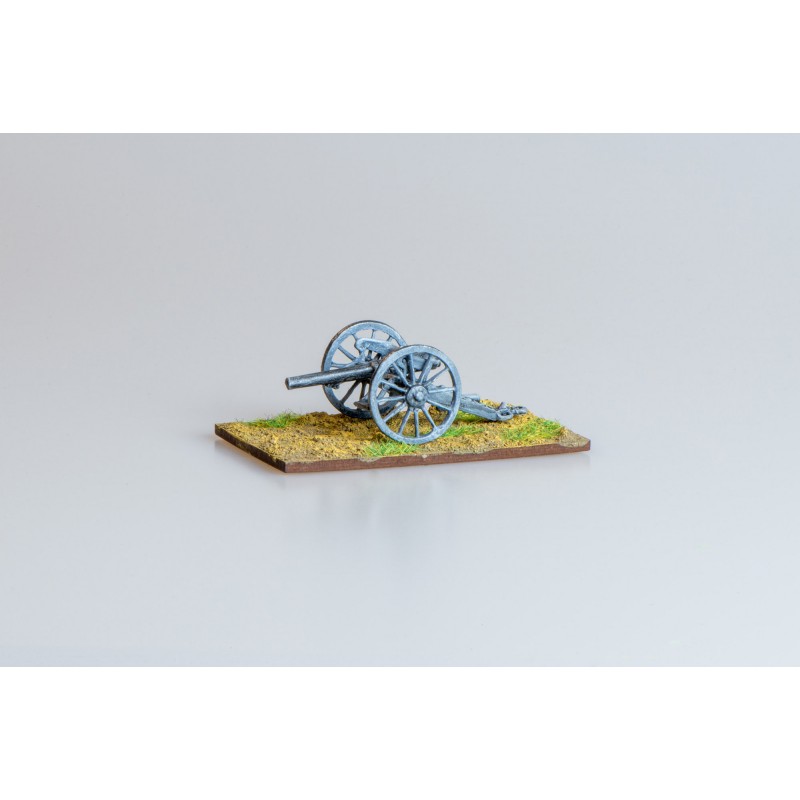
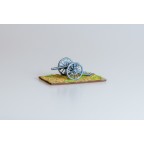
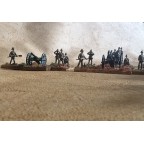
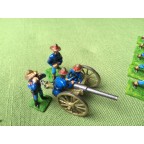
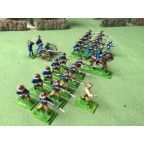
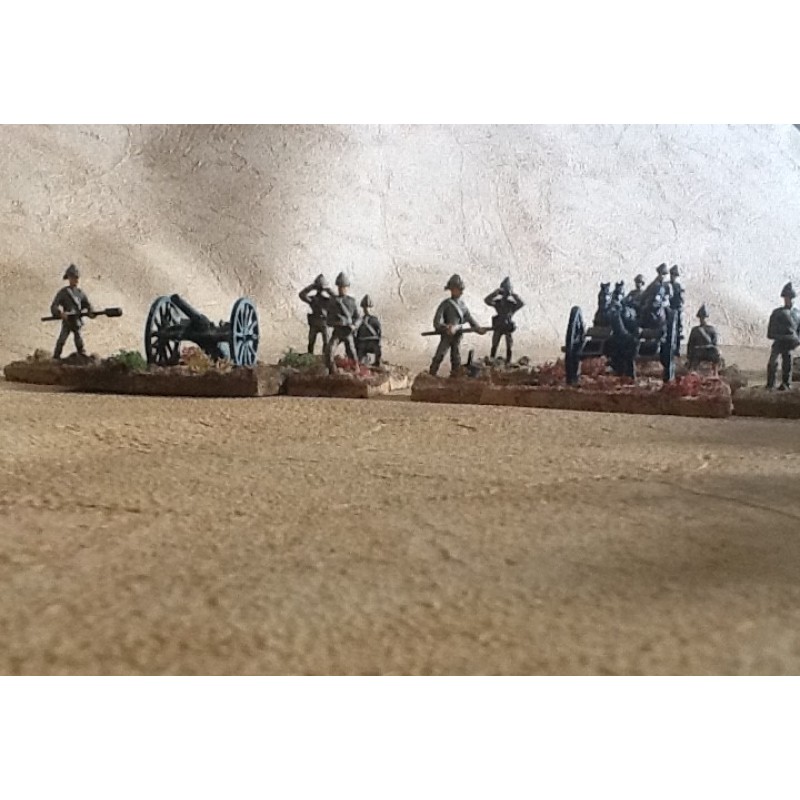
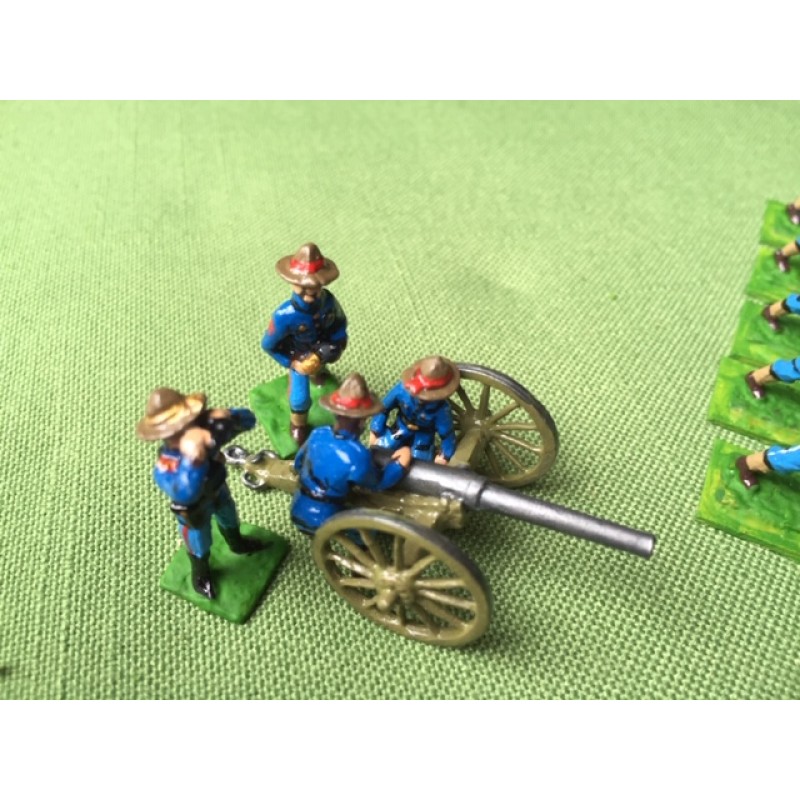
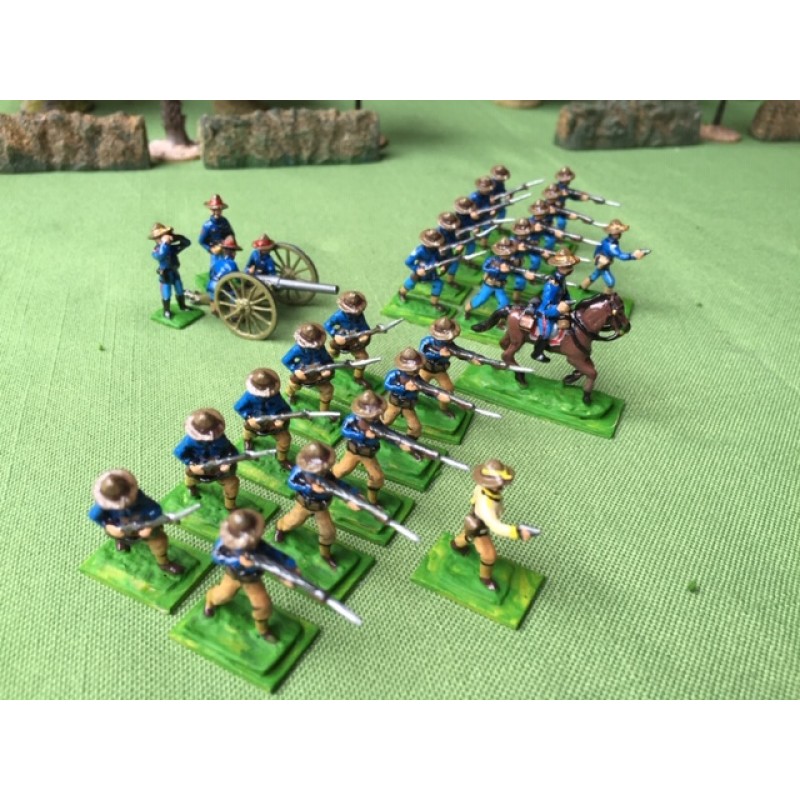



-270x270.jpg)
-270x270.JPG)
